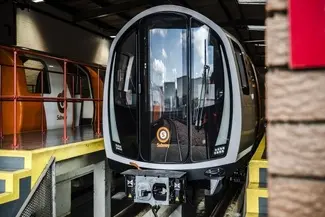No exceptions in 2020 sulphur cap implementation

Consistent implementation is the only option when it comes to the 0.50% limit on sulphur in fuel oil, which comes into force in 2020 was the message by IMO’s Edmund Hughes, speaking at a conference for the refining and petrochemical industry in Athens, Greece, on 13-15 November.
The upcoming sulphur limit set by IMO is a major issue of concern for the majority of industry players, as it creates complexity regarding the choice of compliant fuels, availability of fuels where the vessels operate, and cost implications.
However, any suggestion that there may be any form of delay to the 1 January 2020 implementation was ruled out at the 71st session of the MEPC, in July, as a majority of member states rejected a proposal to collect data to allow the IMO to take stock of the availability situation ahead of 2020.
In the same context, Mr. Hughes reminded delegates that the 2020 global sulphur limit will enter into force on 1 January 2020, without any delay.
The bunkering industry will also have a part to play in ensuring high sulphur fuel oil continues to be supplied to ships equipped with approved equivalent methods, such as exhaust gas cleaning systems or “scrubbers”.
Mr. Hughes also reminded delegates of the commercial imperative for ships to be compliant. In addition to possible detention – which would make the ship a high risk for future port State inspection decisions – a non-compliant ship could be considered as being “unseaworthy”, so affecting their charter party and also indemnity in the event of an insurance claim.
A marine industry survey recently conducted by American energy company ExxonMobil finds that the route to compliance with the IMO 2020 0.5% global sulphur cap is unclear for many vessel operators, as there is not one obvious fuel solution that will apply to all vessels. Specifically, 70% of respondents did not feel the industry is ready for the deadline.
Earlier, a similar survey by consulting company KBC had shown that only 15% of oil refiners knew how they were going to handle the 2020 sulphur limit.
How to ensure consistent implementation will be the subject of important discussions at the next session of IMO’S Sub-Committee on Pollution Prevention and Response (PPR 5), both at its session in February 2018 and during an intersessional working group to be held later in 2018. Compliance, enforcement and monitoring will be the remit and responsibility of both flag States and port States.















![AIRBUS A380 [MORE THAN 600 PASSENGER’S CAPACITY PLANE]](https://cdn.tinn.ir/thumbnail/4jCp4EQvCU0b/IjHVrSYQrIAqIzXuTzADR7qLYX4idQT4nfq__26E5SCUPLMqfhWkWajvuO9Wfq1ql1TjV4dhkrHliNQU82kMpo2NNftT_NGEwHc9KXtN_rk731bmifa2IQ,,/airbus-a380-structure1.jpg)

Send Comment